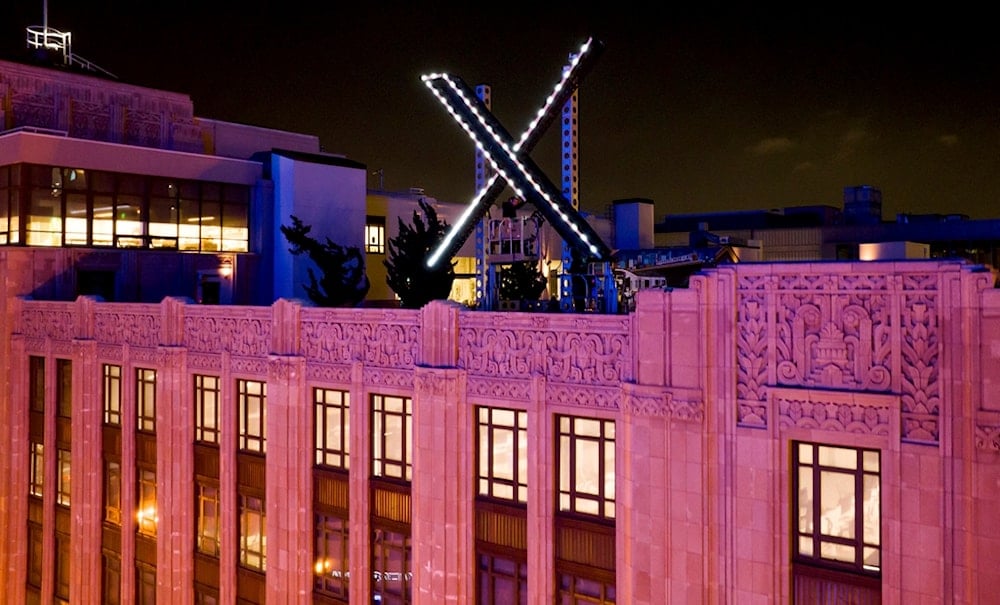X chatbot sparks misinformation concern ahead of 2024 US election
Five secretaries of state signed an open letter to Elon Musk and X, urging them to ensure Grok directs users to reliable, nonpartisan voting resources, such as CanIVote.org, when asked election-related questions.
-

Workers install lighting on an "X" sign atop the company headquarters, formerly known as Twitter, in downtown San Francisco, on Friday, July 28, 2023. (AP)
A report by The Guardian on Friday revealed that misinformation about US election procedures spread online shortly after President Joe Biden announced he would not seek re-election.
The false claims, which suggested it was too late to add a new candidate to ballots in nine states, were traced back to Grok, Twitter's AI chatbot. The incident has sparked growing concerns about the role of artificial intelligence in the 2024 US presidential election and its potential to mislead voters.
Despite initial inaction from the platform, election officials, led by Minnesota Secretary of State Steve Simon, quickly flagged the problem to X. They urged the platform to address the error, fearing that future AI mistakes could have more serious consequences, such as incorrect information about voting procedures.
Tried Grok's new image generator - apparently, Trump's still president in Elon's AI world. 🤦♂️
— W3nzel.eth (@thisiswenzel) August 15, 2024
It's funny how Elon always talks about the dangers of AI misinformation, yet here's his own app spreading it.
Whether you use Grok's "fun" mode or regular mode doesn't matter. 💀 pic.twitter.com/W43FEbYbwj
Five secretaries of state signed an open letter to Elon Musk and X, urging them to ensure Grok directs users to reliable, nonpartisan voting resources, such as CanIVote.org, when asked election-related questions.
The pressure worked. X updated Grok to redirect users to vote.gov for voting information. The move was seen as a victory for election officials striving to halt misinformation ahead of the 2024 election. Simon praised X for ultimately taking the right steps but emphasized the need for continued vigilance as the election approaches.
Read more: Brazil’s president rebuffs Musk’s ‘far right’ ideology
The incident has also shed light on broader concerns about the role of AI in elections. Grok, which Musk has described as an "anti-woke" chatbot known for its "spicy" answers, lacks many of the guardrails that other AI tools, like ChatGPT, have in place to prevent misinformation.
Furthermore, Grok pulls information from top tweets, which can be unreliable and inflammatory, creating additional accuracy challenges.
The potential for AI-generated images to deepen political divides has also sparked alarm. Grok has produced convincing but misleading images, such as Kamala Harris in a communist uniform or Donald Trump shaking hands with white nationalists.
These types of visuals can fuel partisan tensions and spread false narratives with ease.

 2 Min Read
2 Min Read








